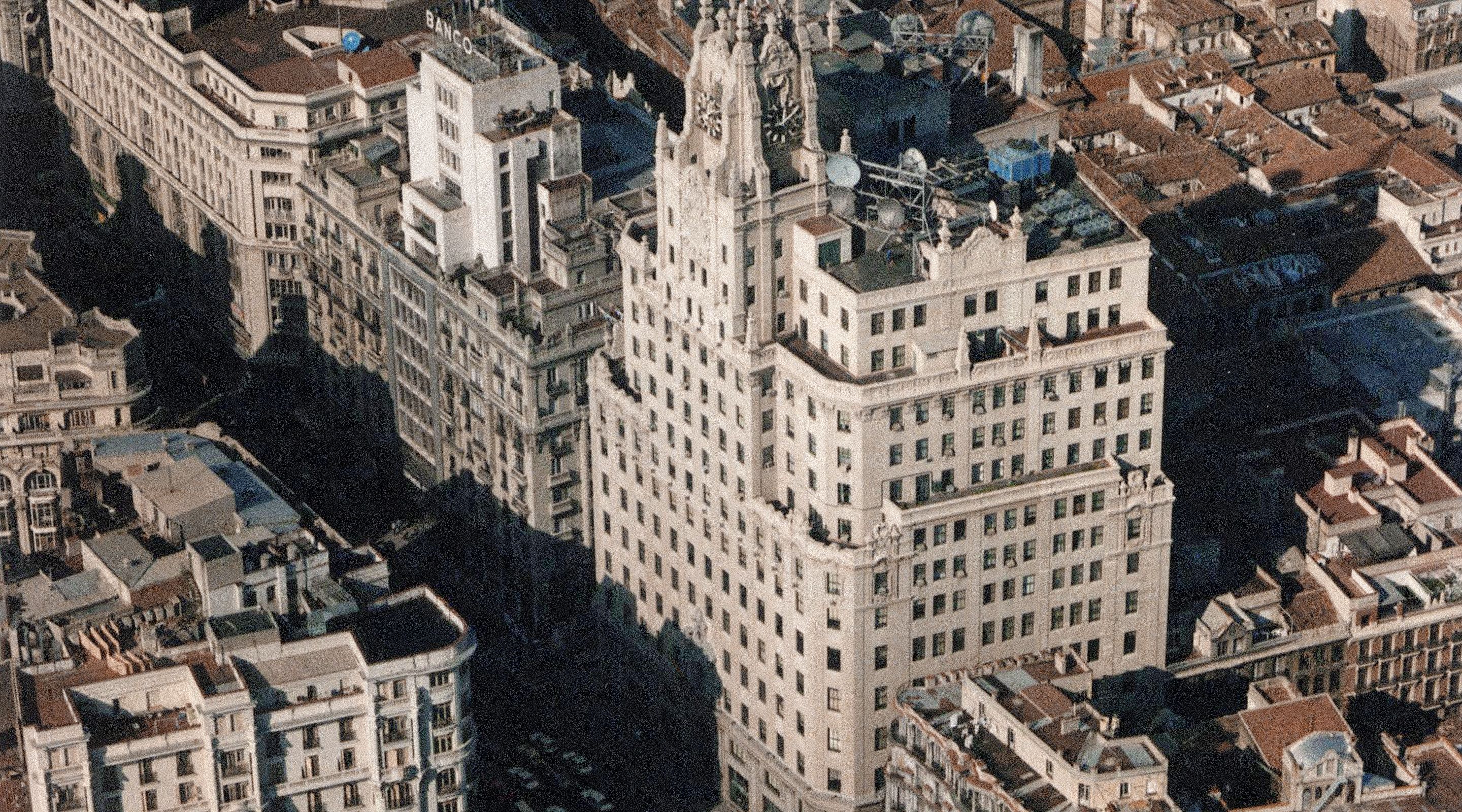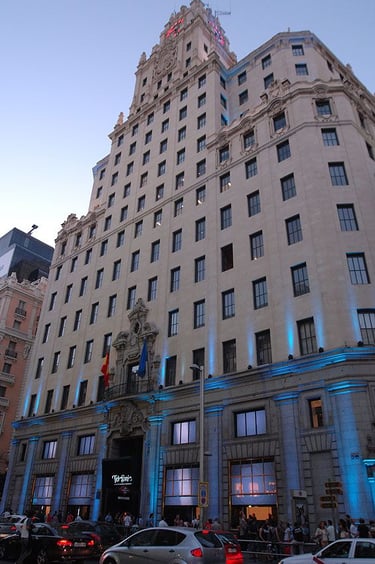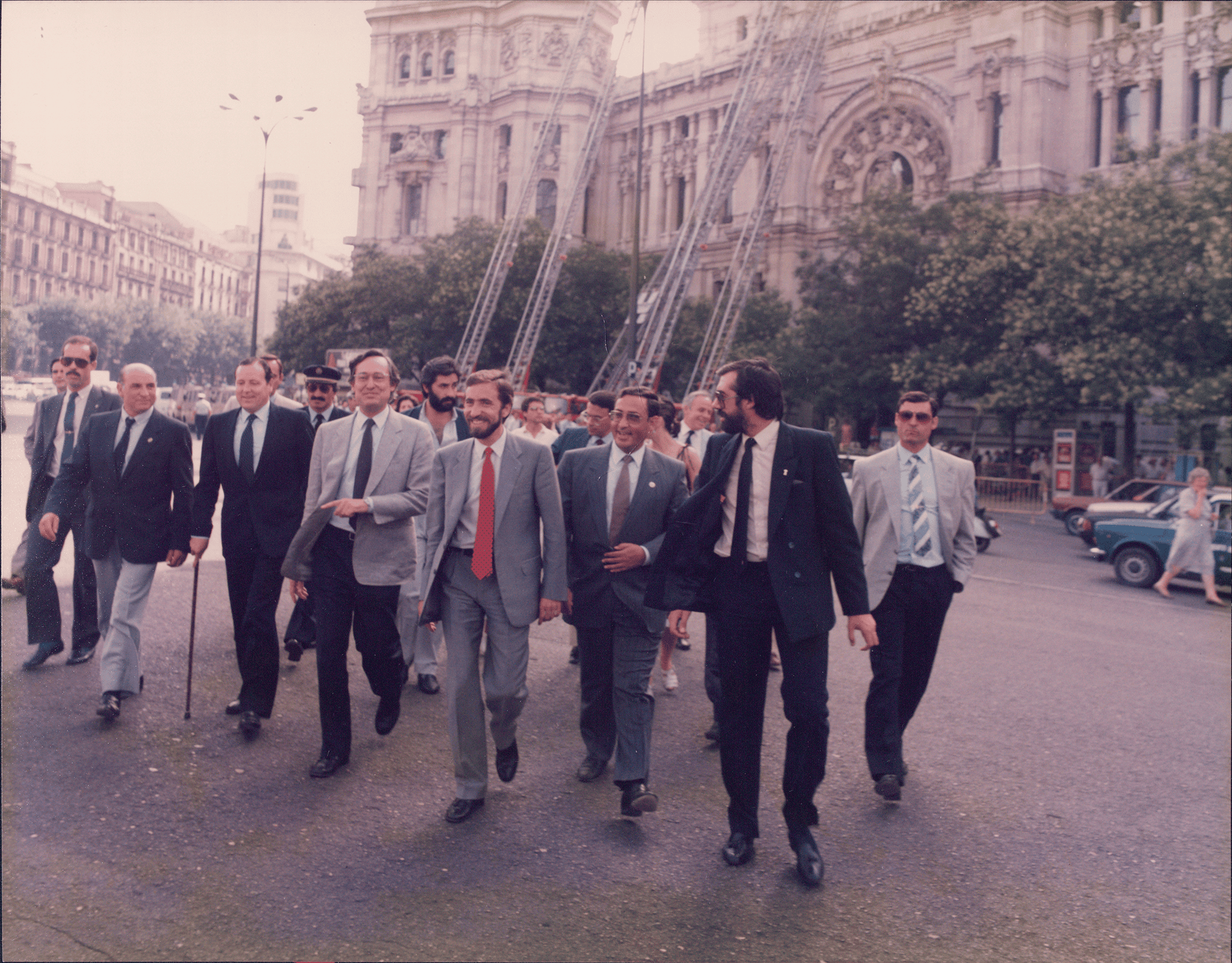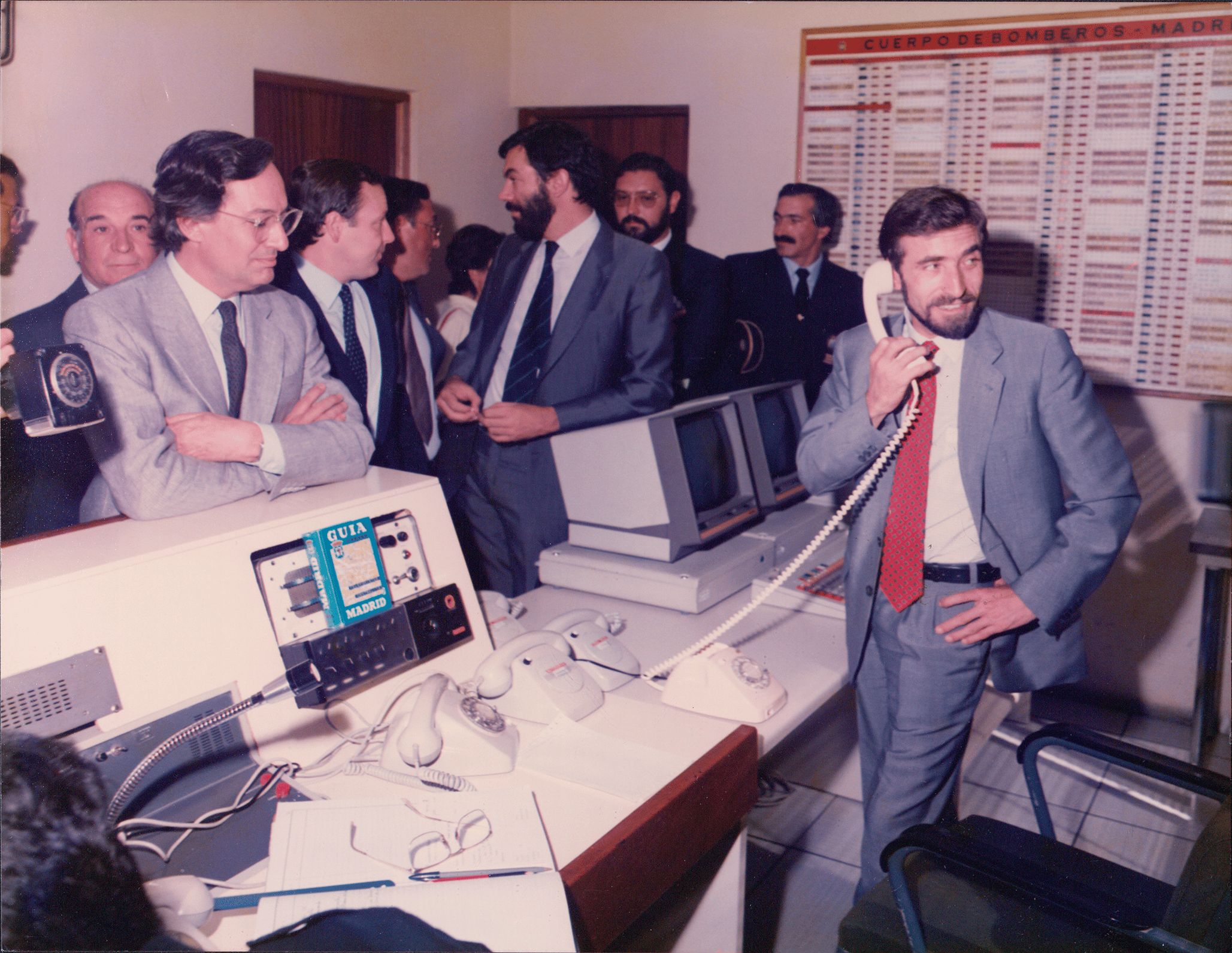
1986

Some 65,000 employees make up an increasingly large and strong Telefónica. Spain joins the European Economic Community and prepares for the new times.
A change of culture
01
In 1986, Spain's entry into the European Union became effective and the new Telecommunications Law was already being drafted (it would become effective the following year). In addition, there was new tax legislation for the company and new law on private TV. It is a time of change and Telefónica is preparing for the new times. In the 1986 report, the new environment is seen as a new world of opportunities for growth. And the focus is on a change of culture for the 65,000 employees at the time, starting with a major reorganisation of decentralisation, giving provincial directors more weight in the management of resources to be closer to customers, a maxim to be followed by all employees. In addition, according to the chairman, Luis Solana, the policy to be pursued is one of "circular holding", which implies the sale of industrial holdings and openness to the creation of new companies, both in Spain and abroad. The Chairman does not forget the Company's 700,000 shareholders in Europe, America and Japan, "shareholders of Telefónica's capital and contributors to our success", to whom he sent a clear message: "I want them to know that this year they are part of a stronger, more secure company with more possibilities and desire to strive for better results.

080: First number for firefighters in Spain
02
On 30 July 1986, for the first time in Spain, an issue dedicated to the fire service went into operation. In Madrid, the 080 telephone number was inaugurated, a short number to facilitate quick calls in the event of emergencies. It was announced through an inaugural call, in which there was no lack of humour, between the mayor Juan Barranco and the comedian Gila. Previously, if a person witnessed or suffered an emergency they had to call 6 or 7 digit numbers at the normal rate. Moreover, in each province they were different. The previous number in Madrid was 2 32 32 32 32, which, although it seems easy, could be a bit confusing. Initially only Madrid, Barcelona and San Sebastian had this phone number. Two years later, in 1988, it came into force in Zaragoza, and by the end of the decade it had been implemented in most of the main provincial capitals where there were municipal fire brigades.

Do you have doubts about what happened?
Ask Aura